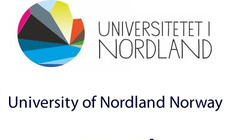
The Faculty of Biosciences and Aquaculture at the University of Nordland (UiN) in Bodø, Norway, is a relatively new aquaculture research milieu in Norway, developed through strategic investments including a genomics platform based on high-throughput sequencing technologies and a marine research station. Bodø, with its coastal location just north of the Arctic Circle, is a perfect environment for studies and research in aquaculture, ecology and other fields of marine sciences in the Northern hemisphere. Aquaculture and fisheries are important economic activities in this region and they also bring societal and financial support to the faculty. Research at FBA focuses on the fields of aquaculture, marine ecology and marine genomics, and the interaction between these subject fields.
The three strategic research groups aquaculture, marine ecology and marine genomics are organised into research units.
The faculty offers modern facilities, including state-of-the-art laboratories and a large, well-equipped research station with its own harbour.
http://www.uin.no/english/aboutus/faculties/fba/research/marinegenomics/aquagenomics/Pages/default.aspx
The Leibniz Institute for Zoo and Wildlife Research (IZW) is an interdisciplinary research institute dedicated to developing the scientific basis for novel approaches to wildlife conservation.
In the current era of the Anthropocene, virtually all ecosystems in the world are subjected to man-made impacts. As yet, it is not possible to predict the response of wildlife to the ever-increasing global change. Why are some wildlife species threatened by anthropogenic change, while others persist or even thrive in modified, degenerated or novel habitats?
To answer this and related questions, the IZW conducts basic and applied research across different scientific disciplines. We study the diversity of life histories and evolutionary adaptations and their limits, including diseases, of free-ranging and captive wildlife species, and their interactions with people and their environment in Germany, Europe and worldwide.
In the current era of the Anthropocene, virtually all ecosystems in the world are subjected to man-made impacts. As yet, it is not possible to predict the response of wildlife to the ever-increasing global change. Why are some wildlife species threatened by anthropogenic change, while others persist or even thrive in modified, degenerated or novel habitats?
To answer this and related questions, the IZW conducts basic and applied research across different scientific disciplines. We study the diversity of life histories and evolutionary adaptations and their limits, including diseases, of free-ranging and captive wildlife species, and their interactions with people and their environment in Germany, Europe and worldwide.


